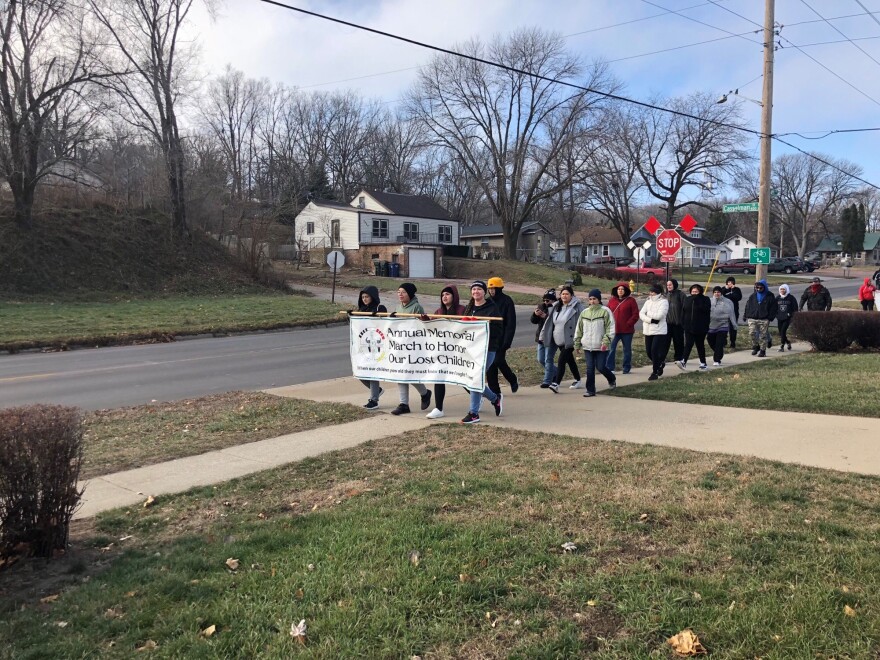Members of the Native American community will march Wednesday in Sioux City to honor Native children who have died in foster care or are lost to the system. But after a prominent local activist died earlier this year, the community is looking to fill the void he left behind.
At last year’s Memorial March to Honor Lost Children, Native American activist Frank LaMere gave a powerful speech on the hardships families face when their children are taken away. He said there’s a disproportionate number of Native children in the child welfare system, as their parents try to heal from addiction or abuse.
“We wish to unify, we wish to heal and we wish to bring our families back together,” Frank LaMere said.
LaMere, a member of the Winnebago Tribe of Nebraska, was a leading voice on the foster care issue. He died of cancer last summer. His son, Manape LaMere, said people will have to step forward to fill the void he left behind.
“We have the leadership in the community, it’s just we have to fine tune that a little bit and see what, since he did so much, how can we help fill that void, that space,” Manape LaMere said.
He said his father knew how to communicate for change.
“He never had to play the race card,” Manape LaMere said. “He could play the human being card: ‘What’s good for the community over here, well how come we don’t have – how come nobody cares about what’s good for us? And here’s what we say is good for us’.”
When children are placed in foster care, some families fear they’ll never see them again, Manape LaMere said. This is the 17th year of the march, which focuses on bridging the gap between the Native and greater community by highlighting disparities the Native American community faces. During the days before Thanksgiving each year, the Native American community works with Briar Cliff University in Sioux City to hold educational workshops about Native American issues.
On Monday, Terry Medina, a member of the Santee Sioux Tribe, accepted a proclamation from the Sioux City Council honoring November as Native American month and recognizing the importance of the march.
“Whereas we support the commitment of the Native community in their continued efforts to focus on building bridges and fostering understanding,” read Sioux City Mayor Bob Scott. “We thank the community initiative and Native children and families and all individuals and organizations responsible for the Memorial March to Honor Lost Children and wish them much success.”
Medina, a probation officer from Winnebago, Neb., said when Frank LaMere first started the march with fellow Winnebago Tribe of Nebraska member Judy Yellowbank, it was a protest against the Department of Human Services in Woodbury County and how they treated Native Americans. But DHS has since embraced the Native community, Medina said. Medina acknowledged Frank LaMere’s death.
“Frank was a man who was color blind. He loved children, he loved people of all colors, and his spirit [is] inside of us,” Medina said. “Protecting our children, embracing our children, being the first teachers to our children all goes with Frank’s wishes.”
The 17th annual Memorial March starts Wednesday morning at War Eagle Monument, a monument in Sioux City that is considered sacred to the Native American community. The march ends in downtown Sioux City.




